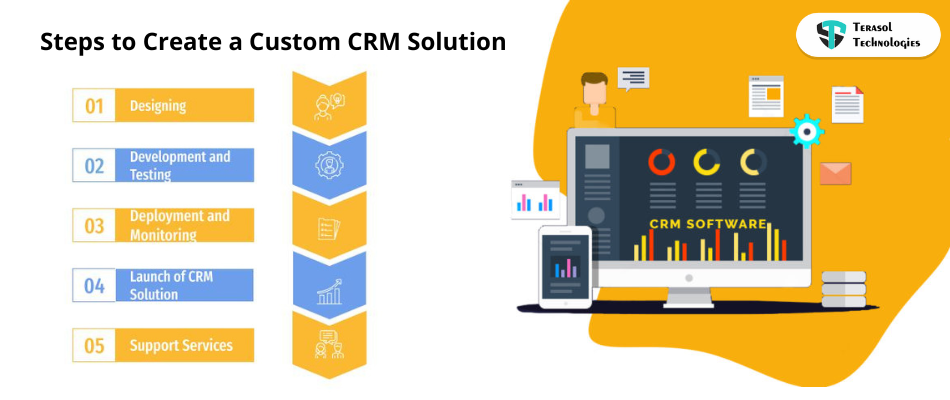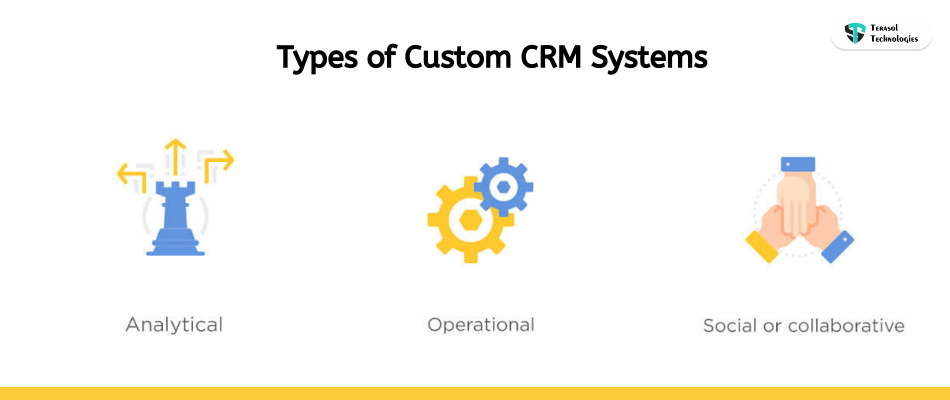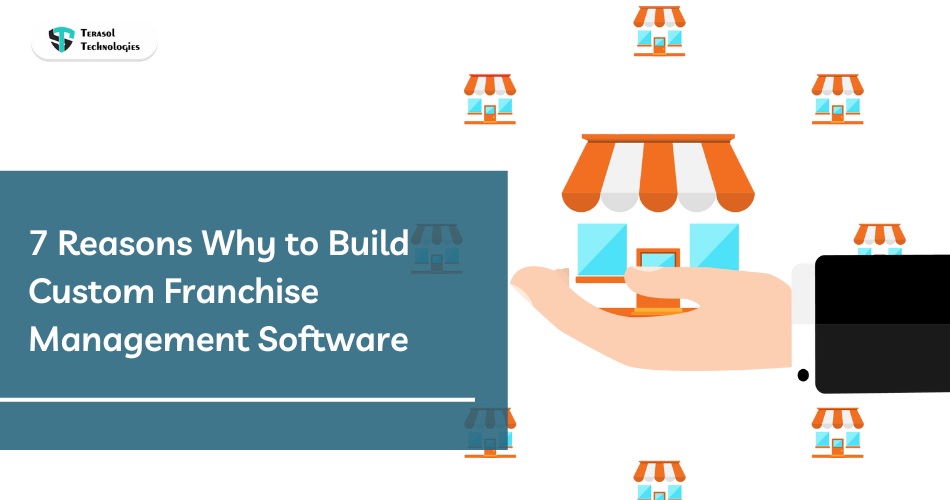The growth of every business is determined by the relationship between the company and its clients, as well as the type of services given. A slight gap between them, and the firm is back at number ten.
The earliest phase of every firm facilitates data collection and storage. You're done with the data after a few spreadsheets and a doc.
However, as the company grows in terms of corporate size, client base, customer base, and other factors, management becomes increasingly complex, if not impossible.
We, as the leading mobile app development firm, recognize the critical importance of customer relationship management in managing things.
Before you ever consider designing, developing, or launching your own custom CRM solution system, consider what features you require, how user-friendly the interface (UI) must be, and what type of design you prefer.
The rest will fall into place after you have a strong knowledge of what you require. Now let’s get started.
Still not convinced? Let’s see some statistics
According to Grandviewresearch, the global CRM market is predicted to reach USD 57.9 billion in 2022, from an estimated USD 52.4 billion in 2021.
.png?width=723&name=Untitled%20(10).png)
The data presented above clearly demonstrate why having a CRM system is essential for firms.
Some recent studies show that:
- 91 percent of US organizations with more than 10 employees currently use CRM.
- CRM may increase conversion rates by 300% in 2019.
- 74% of respondents say that CRM solutions give them better access to customer data, allowing for more personalized service.
- 65% of businesses adopt CRM technology within the first 5 years of launch.
CRM solution system integration benefits any service-based organization, from e-commerce to healthcare and logistics.
If you're familiar with the names Salesforce and Apptivo, HubSpot, and Zoho, it's likely that you've already worked with some ready-to-use CRM software.
Although, have you heard of custom CRM solutions?
What is Custom CRM Solutions?
It is a tailor-made solution for your business, designed to streamline your operations and help you optimize your workflow.
CRM system is the key to unleashing the potential of data to improve decision making, enhance revenue, provide accurate insights, improve customer relationships, and more.
Creating your own custom CRM solution is one of the most significant business decisions you'll ever make. Why?
Why Custom CRM Solutions
Here is some reasons to consider having a custom CRM solution from the ground up.
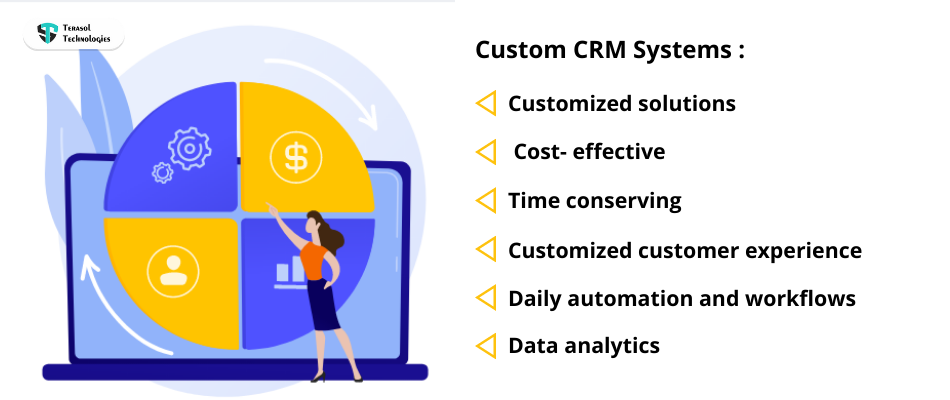
1. You get customized solutions to meet your business needs:
A custom CRM solution allows you to choose all of the features you want in your CRM, making it more adaptable to your needs. You are free to incorporate whatever you want depending on your usage, client support, marketing, and sales expertise. And if you want to change anything, your IT staff can do so quickly and easily.
2. You can cut costs:A market-ready solution is aimed at a variety of enterprises and does not take into account specific operational aspects of an organization.
A market-ready CRM solution is sometimes crammed with capabilities that may or may not be valuable to your firm. A personalized custom CRM solution contains features tailored to your company's needs, resulting in lower expenses.
3. You can conserve time:A custom CRM solution, because it is tailored to your company's needs, overcomes all of these challenges and saves staff time in locating various capabilities.
4. You have the ability to build customized consumer experiences:Custom CRM solution creation has no restrictions because you can create a system that reflects your company's individuality.
5. Daily Automation and workflows:Custom CRM solution systems come into play since they are designed to automate your business's daily ritual activities while also focusing on closing leads and answering customer problems.
6. Data Analytics:Custom CRM solutions centralize important data and information for better analysis of everything according to your business needs. To generate reports, multiple tools and plugins can be used, freeing up time for other duties. Making a resourceful and successful decision with lined and exact data can reap advantages in terms of consumer happiness and goodwill.
5 Steps to Create a Custom CRM Solution
By this point, you should be aware that with the right tools and advice, developing a custom CRM solution may be a breeze. You may construct a CRM that fits your individual demands and satisfies your specific business requirements by following these simple steps.
Step 1: CRM Design
When you talk about CRM system design, you don't just imply attractive visual aspects, but also the user experience.
Depending on how unique your company is, the solution can be complex and time-consuming, or simple and uncomplicated. Make certain that you've recruited a qualified designer with relevant experience. First, the functional design concept should be created and accepted.
Then there's UI design. A well-designed user interface will make interacting with your system simple and intuitive for your users. It should be simple to access the functions you require, and the design should be similar across all platforms.
If you have a workflow strategy, a description of functional operations, a library of user interface elements, and a functioning prototype from your designer, you've accomplished the stage.
Once done with the initial design, it’s time for the development team to buckle up.
Step 2: CRM Development and Testing
Show your development team the design, prototype, and workflow diagrams. At this point, they will have decided on the framework for bringing the design to life.
They must approve project timelines and a road map. Then comes the process of developing software architecture and coding. Once done with these it’s time for testing.
The testing stage includes a software presentation for the consulting team from the target company's departments as well as load testing by QA.
Keep in mind that most CRM systems include a variety of apps tailored to different types of personnel. They are linked to a single database and share functional information.
Step 3: CRM Software Deployment and Monitoring
CRM software development requires app deployment. Time is required to integrate a new system into the workflow. A portion of the time will be spent on database integration, while another portion will be spent installing the application on all of your staff's devices and teaching them how to use it.
When the system is operational, it is critical to begin studying how real people behave within it. Some functions may be ineffective, while others may be absent.
When you build your own CRM as a truly effective solution for business automation and administration, you must regularly research user behavior and iterate on your product.
Step 4: Launch of CRM Solution
Following completion of all development requirements, the product will be released to users in a beta phase, with customer feedback as the primary focus. The launch phase is critical for resolving bugs and improving software functionality for users.
Step 5: Post Launch Support Services
It is an evident fact that post-development services play a significant part in the proper operation of the CRM system. Experts must provide post-project assistance by upgrading CRM capability based on customer input.
However, before development, there are a few things you need to consider.
Want to get a rough estimate for your CRM Project? Contact our CRM experts now.
7 Things to think about before starting from scratch with a CRM
Developing a bespoke CRM system from the ground up may appear to be a difficult process, but if you consider all of the variables and prepare correctly, it can be a highly rewarding experience for your company.
There are numerous factors to consider before starting from scratch with a CRM system.
1. CRM Development Goals
Begin by establishing and prioritizing your business goals for developing a CRM platform. This will assist you in determining the finest CRM system design and features for your company's needs.
Depending on the characteristics of your organization and industry, your CRM development goals may include:
- Keeping and managing consumer data in one location.
- Increasing client loyalty and satisfaction.
- Marketing and sales operations are being optimized.
- Increasing ROI of your business.
So, knowing your business goals and objectives makes it easy to choose the best CRM system for your needs.
2. Types Of Custom CRM Systems
It is evident by now why creating a CRM from scratch is advantageous for your company. Let us now look at the three primary types of CRM systems-
Analytical CRM
By giving insights into consumer behavior, analytical CRM solutions assist firms in making better decisions.
This type of CRM may gather and process a large amount of data from several touchpoints. Insights, statistics, and analytics data are provided by the system.
Its primary function is to aid in planning. The fact that these systems deliver real-time data and analytics is a significant advantage.
The following characteristics may be found in analytical CRM:
- Data Mining
- User Persona
- Selling Opportunities
- Data Forecasting
Operational CRM
Businesses benefit greatly from operational CRM systems. They aid in the management and integration of corporate operations, allow employees to access customer data from anywhere, and provide real-time visibility into many aspects of the business. The following characteristics may be found in operational CRM:
- Lead generation
- Contact management
- Sales Automation
- Marketing Management
Collaborative CRM
A collaborative custom CRM solution is one that enables firms to share client data across departments. Every collaborative CRM is intended to promote communication and teamwork. They establish a transparent environment for data sharing. These platforms are typically jam-packed with tools for group discussions, chats, and shared boards. Users may quickly share files and view activity streams.
The following characteristics may be found in collaborative CRM:
- Interactional Management
- Document Management
- Relationship management
With custom CRM, all of these CRM kinds can be merged into a single adaptable solution too.
3. Set of features
Another critical stage is deciding which features to add in your CRM. Your decision should be guided by your objectives, which means focusing on the functionality that will best satisfy your company's demands. Although some capabilities are only available in certain CRMs, others are available in practically every CRM system.
Check out these features in detail here.
4. Integration with internal business software
Another important consideration when developing your own CRM is the sort of software you wish to integrate with, the functionality required, and the level of customization desired. It is critical to select CRM software that is compatible with your company's present system and infrastructure, as well as provides the features and capabilities required to efficiently manage your customer data
5. Role segregation in CRM
We recommend establishing user roles and permissions because you're likely to have several employees use your CRM for different purposes. User roles like C-level executive, marketing representative, sales representative, and customer representative can all be included.
Each user role will offer access to different features. There will be no chance of data leaks as a result of this.
6. Quality Requirements
To comply with quality standards such as ISO, ASTM, and others, write down CRM quality requirements such as speed of operation, security access, built-in analytics, and database integration.
7. Legal Concerns
Any business activity is subject to legal constraints. If you work in healthcare, for example, gathering potential clients' data may be difficult due to privacy policies. As a result, your options for promoting your product or service are limited.
Custom CRM Solution: Development Cost and Features
The cost of developing a bespoke CRM varies depending on whether you want to go with online development or mobile app development. You'll probably need to invest in software, technological stack, consultants, training, and time if you want a comprehensive and custom CRM solution that interfaces with all of your other systems.
If you only need a few features added to your present system or want a more customized solution, on the other hand, you can probably obtain exactly what you need without spending too much money.
In addition, if you want to outsource CRM software development, you will need the following specialists:
- Project manager
- QA specialist
- UI/UX designer
- Front-end programmer
- Backend programmer
How much does CRM cost you? We separated the features into several working zone features.
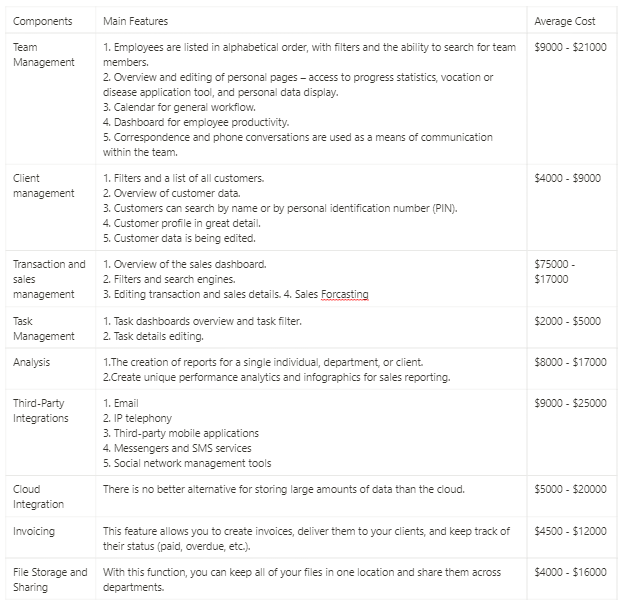
A custom CRM software development project can cost anything from $30,000 and $200,000. The pricing difference here is determined by a number of factors, including the technological stack, functionality, team size, software integrations, and much more.
How can Terasol help you develop efficient and secure CRM software?
Because each organization has its own set of features and business processes, custom CRM software varies greatly. As a result, ready-to-use digital solutions in that industry fail in half of the cases.
Terasol's team has a track record of designing software that can alter your business processes. We've developed a number of software tools that help users streamline their complete procedure from start to finish.
Our engineers use numerous technologies to construct many levels of security protection and provide frequent security inspections, testing, and maintenance services.
Check out out services to know we can assist you in maximizing the value of your technology by improving data discoverability, accessibility, and modularity.
If you have a concept for a bespoke CRM system that you're still pondering, don't hesitate to discuss it with us. We'll take care of the entire development process for you.
Our team of specialists at Terasol Technologies will provide you with top-notch business software development services that are up to date and will guide you through the complete CRM journey.
